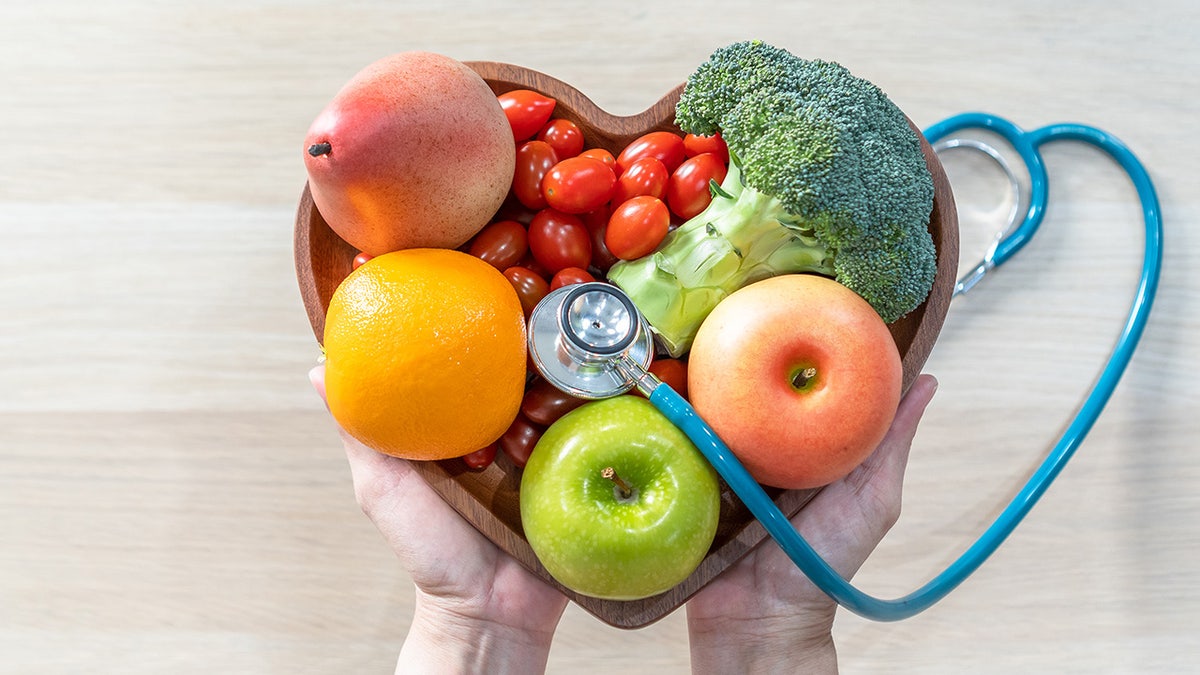Does everyone need to take vitamins — and which are most important? Here’s what to know

Advertisements and social media often suggest that vitamin supplements are important for optimal health — but are they really essential for everyone?
“Vitamins have become a multi-billion-dollar industry, with shelves full of supplements promising better health, more energy and a longer life,” Andrea Soares, a registered dietitian from Top Nutrition Coaching in Miami, Florida, told Fox News Digital.
Just over 57% of American adults took dietary supplements between 2017 and 2020, with multivitamins and minerals being the most popular, according to a recent report from the Centers for Disease Control and Prevention (CDC).
DAILY MULTIVITAMINS MIGHT NOT HELP YOU LIVE LONGER, STUDY FINDS
But what does this mean for you? Fox News Digital spoke to the experts to find out.
What is a vitamin?
Vitamins are nutrients that are essential for the body to function normally, according to Jennifer Messer, president of the New Hampshire Academy of Nutrition and Dietetics and a registered dietitian in New Hampshire.
“We cannot make vitamins in our bodies, and so we must get them in our diets,” she told Fox News Digital.
(The one exception is vitamin D, which people can also get from the sun.)
Vitamins are either fat-soluble or water-soluble, according to the National Institutes of Health (NIH).
BE WELL: PREPARE A DINNER RICH IN VITAMIN D FOR GOOD HEALTH
Fat-soluble vitamins — A, D, E and K — are stored in the body’s fatty tissue, liver and muscles, so they are absorbed better when taken with fatty foods.
Water-soluble vitamins are not stored in the body, so any excess amount is usually excreted in the urine.

Thirteen vitamins are considered “essential.”
These include vitamins A, C, D, E and K, as well as the B vitamins (thiamine, riboflavin, niacin, pantothenic acid, biotin, B6, B12 and folate), according to the NIH.
“For most people, a well-balanced diet is sufficient to meet daily vitamin needs,” Soares told Fox News Digital.
“For most people, a well-balanced diet is sufficient to meet daily vitamin needs.”
Vitamin A is easily obtained from eating a balanced diet, vitamin E is abundant in common foods, and most people get enough vitamin C if they eat fruits and vegetables like oranges, strawberries and bell peppers, she said.
Some people don’t get enough vitamins from dietary sources, however.
When are vitamin supplements necessary?
Certain vitamin deficiencies can potentially cause health problems.
“In the U.S., the FDA updated nutrition labels to reflect nutrients of public health concern due to deficiencies or inadequacies in the general population,” Messer told Fox News Digital.

Vitamin A helps maintain good eyesight, for example — and children who get an inadequate amount are at risk for blindness, according to the CDC.
As vitamin D supports bone health and immune function, people with limited sun exposure may be more prone to bone diseases like osteoporosis, research has shown.
“As of recent regulations, vitamin D is required on nutrition labels,” Messer noted.
IV THERAPY CRAZE HAS AMERICANS PUMPING VITAMINS INTO THEIR VEINS: RESULTS ARE ‘PRETTY DRAMATIC’
Vitamin B12 is essential for red blood cell production and nerve function, according to Soares.
Folate supports DNA synthesis and prevents neural tube defects (birth defects of the brain, spine or spinal cord), so it is important for women to get adequate amounts before and during early pregnancy, per the CDC.

It’s a common misconception, however, that vitamin supplements are beneficial for everyone, according to Messer.
“Technically, all vitamins are necessary — however, it is unnecessary to supplement a vitamin unless you are found to be deficient,” she said.
“An individual’s supplement requirements will vary based on medical conditions, dietary restrictions, malabsorption issues and nutrient deficiencies.”
“It is unnecessary to supplement a vitamin unless you are found to be deficient.”
Certain groups may have a greater need for vitamin supplements than others.
“While a vegan diet can fulfill many nutrient requirements, there are certain vitamins, such as vitamin B12 and vitamin D, that may need closer attention,” Messer said.

People who need to avoid certain foods due to allergies or intolerances may also require supplementation.
People managing certain gastrointestinal conditions like Celiac disease, Crohn’s disease or ulcerative colitis can have impaired nutrient absorption, particularly with fat-soluble vitamins, Messer noted.
IMPROVING MEMORY MAY BE AS EASY AS POPPING A MULTIVITAMIN, STUDY FINDS
Liver disease can also impair the body’s ability to store some vitamins, particularly those that are fat-soluble.
Chronic kidney disease can affect the balance of certain vitamins, especially vitamin D, Messer said.

Athletes with a high training load may also require additional vitamins to support energy metabolism and bone health, she added.
Experts recommend consulting with a doctor before taking a supplement. A simple blood test can reveal if any nutrients are at deficient levels.
Ensuring supplement safety
Fat-soluble vitamins — A, D, E and K — can accumulate in the body and lead to toxicity if taken in excess, according to Messer.
“Water-soluble vitamins (like B and C) are generally excreted if taken in excess, but mega-dosing can still have unwanted side effects,” she told Fox News Digital.
Experts recommend talking to your doctor before starting any new supplements.
The quality and safety of dietary supplements can vary widely, as they are not FDA-regulated.
“It’s important to choose reputable brands and products due to possible variances in the amount of nutrients listed on the label, as well as potential contamination,” Messer advised.
She recommends searching for a third-party tested seal on the supplement’s label, such as “USP Verified,” which indicates that the product “contains the ingredients listed on the label in the declared potency and amounts.”
Many people often inquire about vitamin D supplements, Messer said.
CLICK HERE TO SIGN UP FOR OUR HEALTH NEWSLETTER
“It’s important to supplement only with the required amount of vitamin D if a deficiency is confirmed through labs,” she cautioned.
(The Endocrine Society — a global organization focused on endocrinology and metabolism — now no longer recommends routine screening or vitamin D supplementation for healthy adults under the age of 75 years old.)

“It can be dangerous if vitamin D levels remain high over a prolonged period, as excessive amounts may cause an array of issues, including kidney stones,” Messer added.
It’s also important to be aware of any potential interactions between vitamins and other medications, experts say.
For more Health articles, visit www.foxnews.com/health
“Medication interactions occur when vitamins like K reduce the effectiveness of blood thinners, or calcium affects antibiotic absorption,” Soares warned.
Experts recommend talking to your doctor before starting any new supplements to discuss potential risks and safe dosage amounts.







